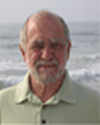Communicating Appliances
Nicholas F. Maxemchuk (Full Professor at Columbia University and Chief Researcher at IMDEA Networks)
Abstract
On a smart grid appliances will be controlled based upon local information. The type of control that we can exercise, and the type of information that we collect, will depend on the type of appliances that we control. We will investigate two appliances, air conditioners and electric vehicles. Air conditioners currently cause most of the overload conditions on the power grid, and electric vehicles will place a new major demand on the power network, and become the problem of the future.
Most proposals to control power consumption on the smart grid use economic forces, such as increasing rates during peak loads and making the rates available to the consumer. This is a win/win propositions. The power companies can charge more for their product at a time when it costs less to produce, and the rich and powerful are inconvenienced less by shortages than the rest of us.
As an alternative we will investigate an engineering approach adapted from communications networks. We will define a fairness metric and show how to achieve fairness by using flow control algorithms.
Short Bio Nick Maxemchuk received the B.S.E.E. degree from the City College of New York, and the M.S.E.E. and Ph.D. degrees from the University of Pennsylvania.
Nick Maxemchuk received the B.S.E.E. degree from the City College of New York, and the M.S.E.E. and Ph.D. degrees from the University of Pennsylvania.
For the past 9 years he has been a professor in the electrical engineering department at Columbia University in New York City. He has a dual appointment as a chief researcher in IMDEA Networks in Madrid. Prior to joining Columbia he spent 25 years at Bell Labs and AT&T Labs, as a member of the technical staff, department head, and technical leader. Prior to joining Bell Labs, he spent 8 years at the RCA David Sarnoff Research Center, as a member of the technical staff.
He has been the editor-in-chief of the IEEE Journal on Selected Areas in Communications, an editor for the IEEE Transactions on Communications, and the JACM, was on the founding committee of the IEEE/ACM Transactions on Networking, and served on their steering committee for 11 years.
In 2006 he received the Koji Kobayashi Award for his work in computer communications. He has also been awarded the IEEE's Leonard G. Abraham Prize Paper Award in 1985 and 1987, for his papers on data and voice on CATV networks and the Manhattan Street network, and the William R. Bennett Prize Paper Award in 1997, for his paper on an anonymous credit card. He has been a fellow of the IEEE since 1989.




